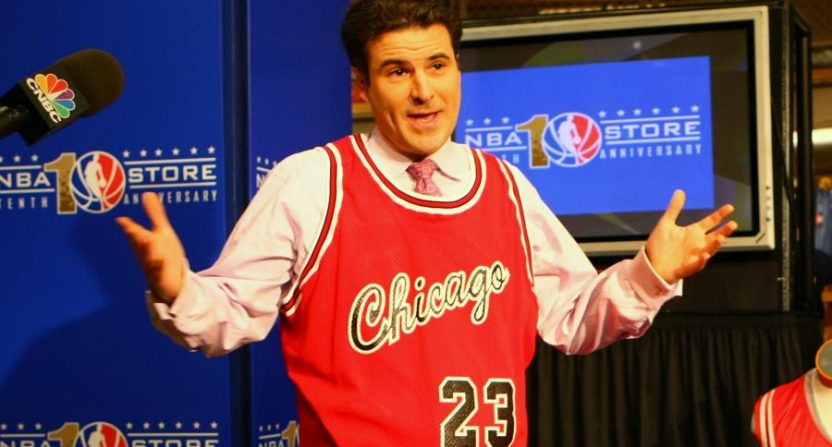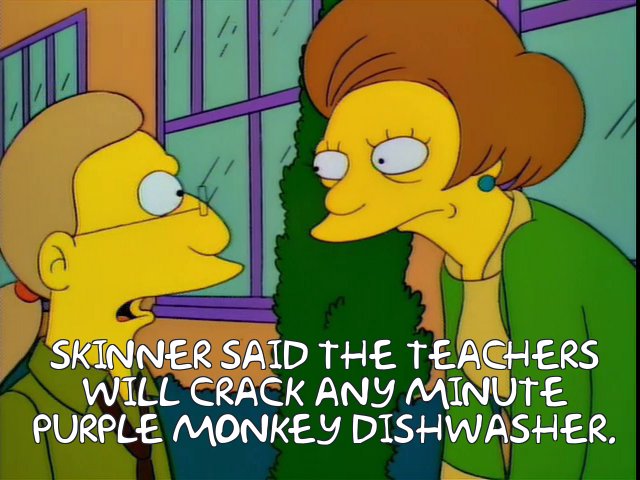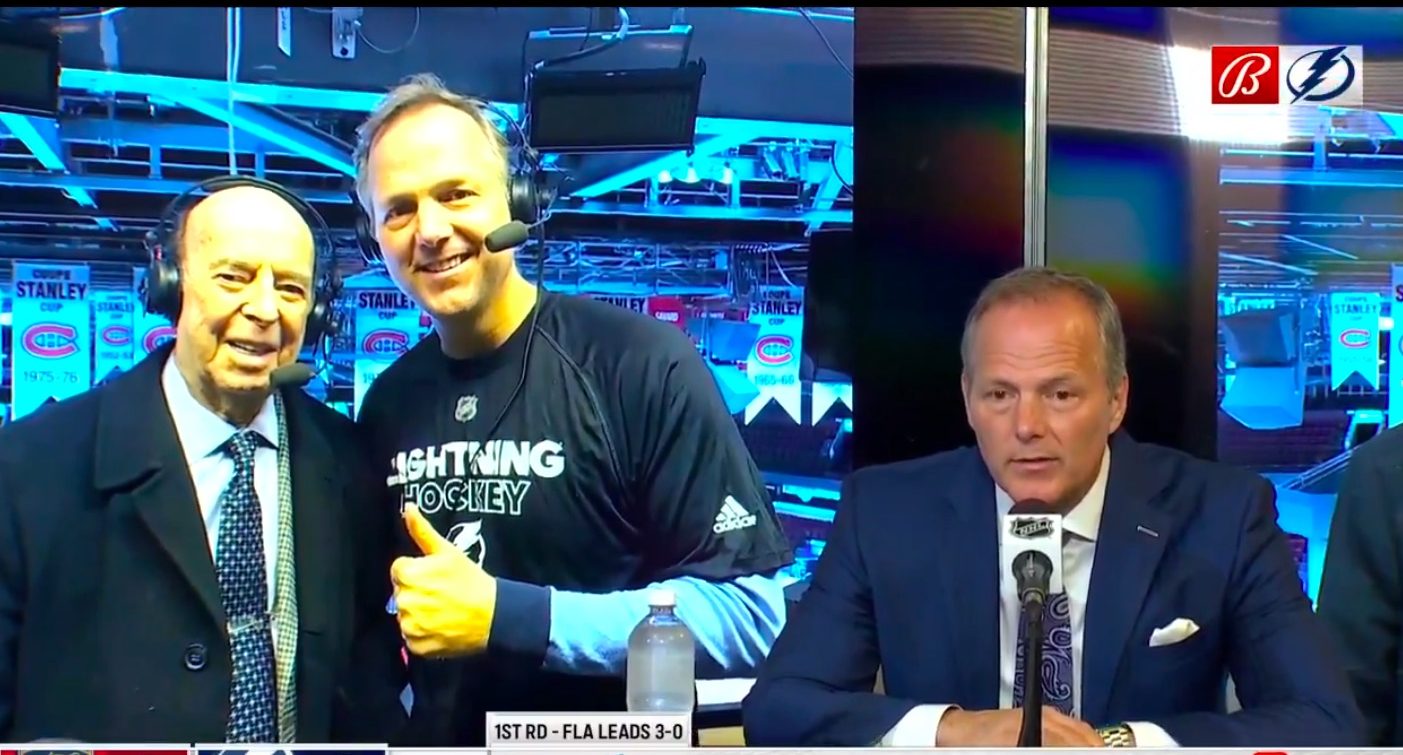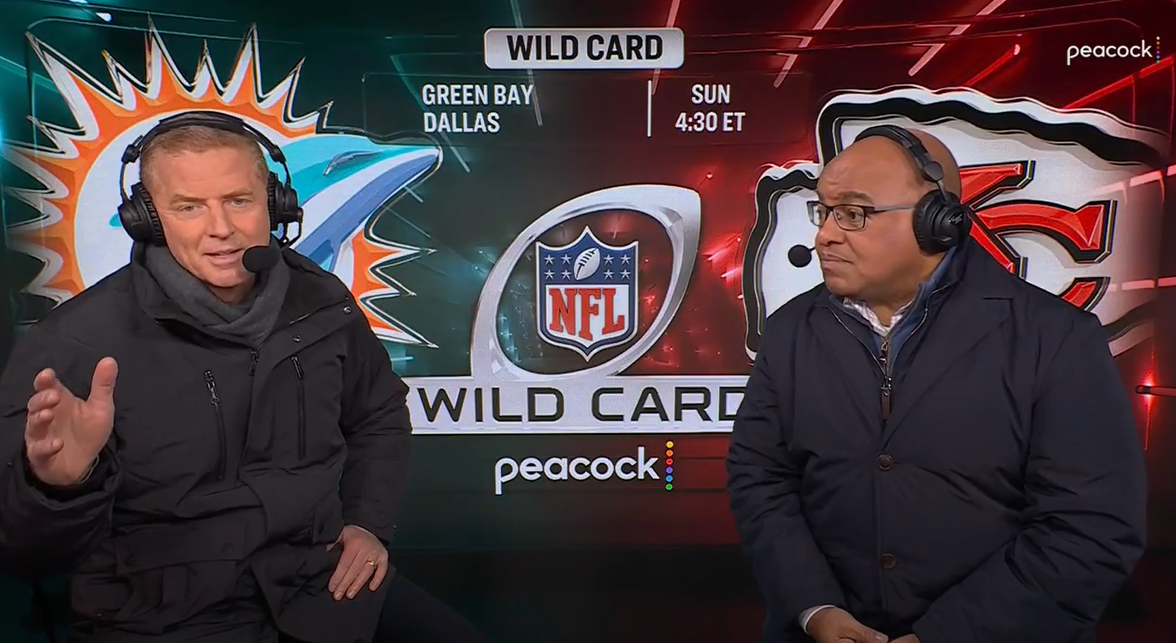The Wonderlic test has been highly criticized for its use in evaluating NFL players. Particular examples come from a 2014 Harvard Sports Analysis Collective article concluding “a quarterback’s score on the Wonderlic Test does not serve as a significant predictor for any of the metrics we analyzed” and a 2016 Sporting News piece summarizing various academic studies that all bashed the Wonderlic’s relevance to football, with one saying it “does not appear to have utility in the professional football arena.” Those are just a few of the pieces and studies concluding it isn’t useful.
That doesn’t stop many media members from reporting and repeating leaked Wonderlic scores, though, and the latest to do the latter (while throwing in a clipping of average Wonderlic scores for other professions) is ESPN’s Darren Rovell (seen above). However, after doing so, Rovell took major public backlash from ESPN colleague Bomani Jones. Here are the tweets in question:
Leonard Fournette & Dalvin Cook got 11's on their Wonderlic, per @BobMcGinn. Here's an occupational comparison chart pic.twitter.com/38jf3AX7RE
— Darren Rovell (@darrenrovell) April 20, 2017
Score a 4/50 on the Wonderlic, the worst recorded score:
LSU DB Morris Claiborne
Iowa St RB Darren Davis
West Va WR Calvin Phillips— Darren Rovell (@darrenrovell) April 20, 2017
wonderlic shaming is wrong, man. stop it. https://t.co/d0xCc6DfNz
— bomani (@bomani_jones) April 20, 2017
Rovell later admitted that the test isn’t a perfect predictor of NFL success, and said he’s “surprised test is even given anymore”:
Deion Sanders got a 13. Surprised test is even given anymore.
— Darren Rovell (@darrenrovell) April 20, 2017
That raises questions of why he thought the Fournette/Cook scores were worth repeating and why he thought it was worth mentioning the lowest scores ever (which, as he later noted, may have been thanks to those players’ learning disabilities):
Has been a major issue for teams because uncharacteristically low scores have signaled learning disability or dyslexia. How do you measure?
— Darren Rovell (@darrenrovell) April 20, 2017
so was Darren Davis. Brings up the question what relevance this test has. Surprised it is still given.
— Darren Rovell (@darrenrovell) April 20, 2017
We also got the most Rovellian defense of all Rovellian defenses; big businesses do it, so logically it must be good and work.
test gets publicly bashed as useless, begs the question as to why teams still use it. Gotta be a reason more than tradition.
— Darren Rovell (@darrenrovell) April 20, 2017
Don't understand that strategy since NFL teams obviously still see some relevance in giving it.
— Darren Rovell (@darrenrovell) April 20, 2017
Teams still give it, teams still look at it, teams still keep track of it. They still make it part of the equation, I don't.
— Darren Rovell (@darrenrovell) April 20, 2017
who said I didn't think it matters? I'm unclear of relevance to teams. But they still give it and still track it and make it part of formula
— Darren Rovell (@darrenrovell) April 20, 2017
This brings up an important hypothetical question:
An NFL team could tell you "purple monkey dishwasher" about a prospect. As much correlation to success as Wonderlic. Would you tweet it?
— Andrew Bucholtz (@AndrewBucholtz) April 20, 2017
No response to that one yet. That’s obviously taking things to the extreme, but the point is that information doesn’t have value to the public just because of the source. In fact, having particular information reported often has more value to the source than it does to the public; getting a particular factoid or viewpoint out there can advance the source’s agenda, or alter decisions made by others. And this is always a possibility with things like the NFL draft; yes, reporting or repeating players’ Wonderlic scores probably won’t affect where a player is taken too much, as teams aren’t usually too reliant on media or public reaction, but this can be a minor factor. A team can pass on a player and have that decision defended by those who buy “He had a low Wonderlic,” or take a player who didn’t put up as high stats or physical testing metrics and have that decision defended because of his Wonderlic score. And yet, those scores have as much correlation to NFL success as purple monkey dishwasher.
It’s easy to agree with Jones here; there doesn’t seem to be a lot of point in Rovell sharing these Wonderlic numbers, especially with him somewhat questioning the test too. However, this wasn’t even the most spectacular criticism of Rovell this week. That would be this one from Wednesday:
In 1997, no one was reading Northwestern's weekly paper. That changed when I turned sports section into all betting. pic.twitter.com/nfZ4zwTm6h
— Darren Rovell (@darrenrovell) April 20, 2017
In 1998 Northwestern was rocked by two betting scandals https://t.co/C3SLU9F4Ys https://t.co/VuMWKFxavp
— Mark Mravic (@MarkMravic) April 20, 2017
We’ll be waiting for Rovell to offer betting lines on next year’s prospects’ Wonderlic scores.







